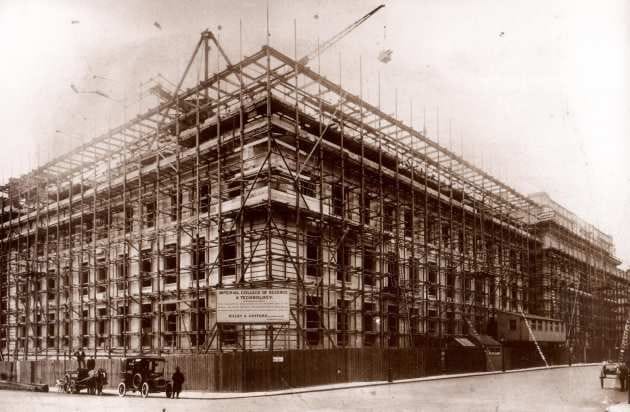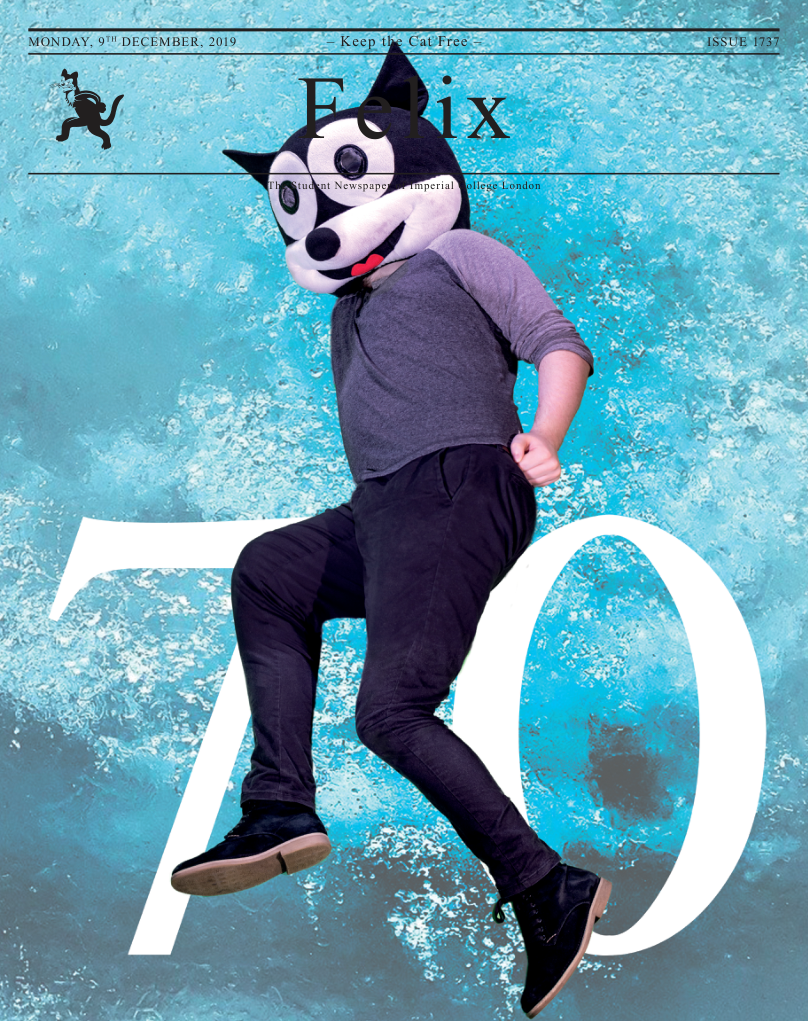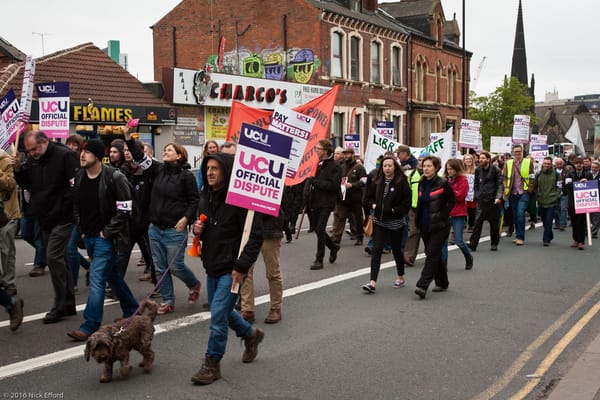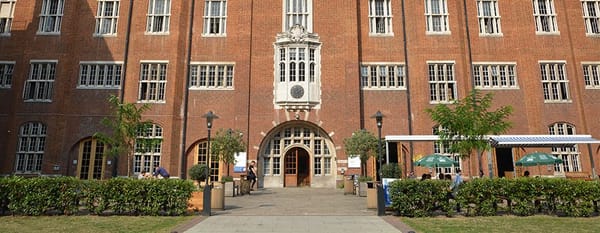Felix Interviews: Anne Barrett, College Archivist
The College maintains extensive archives and records of its activities, containing a wealth of fascinating history – which is presided over by Anne Barrett. Felix spoke with Anne about the archives and their role in the College’s operation

Felix: Most students probably aren’t really aware that the college has archives – do you interact with students a lot?
Some of them are – particularly the constituent college unions – and I do host evenings with different groups. When I had the City and Guilds Union members in, they were looking at their past publications, and they were fascinated to see what was acceptable to write in the past that perhaps wouldn’t be so now. But they were sensible about it, and they understand the context. You need to understand the context of the time and history is history; you can't and you shouldn't attempt to change history - but you should learn from it. What we do in the archive is reflect the history of the College and people’s experience here – so it doesn't matter what the thing is, it could be as simple as meeting minutes, I like people to bring me things!
Felix: When you talk about having groups in, what does that experience look like?
We bring them into the research room and bring the materials they need to them – which aren’t always the things they originally asked for! Often their needs change as their research does and people don’t always know the right thing to look for; we need to interpret their needs and use our expertise to figure out where they should look to find their answers.
When student groups come in it’s usually focused around their own deposits of their records, like the RCSU’s Broadsheet or minute books from old meetings. We hold onto those things for them, having the expertise to manage it and the space to store it, but it belongs to them. As to access for research, we need to know what people want exactly in order to assist them to what they need, which isn’t always what they may ask for. We need to drill down to their real question, and this is unique material, so we have to supervise them using it. We will provide things digitally if requested, but don’t allow people to take pictures when they come in – because, for example, a lot of our archive is copyrighted. We are open to internal and external researchers.
Felix: Something that was raised to me by one of the constituent unions, the CGCU, was that Imperial as an institution feels as if it is phasing out its own history at times – does that ring true for you?
I think there was this notion that constituent unions would become ‘chapters’, so people felt that downgraded them. My view is: Imperial is so big now that you really need to feel like you belong to something. I actually think constituent college unions are really important, to make people feel like there is something they can get hold of, that they can do their part in, rather than a big nebulous thing.
Felix: Do you think the STEM focus here leads people to disregard the history of the College at times – operating in a ‘bubble’?
Not necessarily. I think that people are very, very busy, and that there’s masses more knowledge now than there used to be and so there’s masses more to learn. Courses are very, very intensive. So people don't have the capacity to do what students used to do, and that sort of freedom rather than anything else. But students and other sections of College use our services a great deal.
Felix: What sort of challenges do you face in your role? I would think College’s expansion over the years would make things harder!
It does make things slightly harder in terms of volume. We try to encompass as much as we can. But within that, we aren’t looking back, but are rather looking forward. We need to know what’s happening now, and we need to know what is going to happen, in order to make sure we get in contact with the right people to obtain and retain important documents - so our work is very forward thinking, not so much backward as people might expect.
The electronic expansion has also meant there’s masses more to find. Email especially is a challenge for everybody! There is a lot of material in emails, and nobody globally has come up with a solution for keeping and sifting through all that material. Human nature makes it hard – when people use a particular email headline, they don’t stick to that topic; the conversation moves onto other matters. If everyone was very disciplined and wrote proper titles or subjects and switched email chains when discussing something else, it’d be much easier to manage for them. I think one of the biggest challenges for the future is ensuring that early career scientist are aware of the need for them to retain their own digital footprint for career and biographical purposes. If they don’t keep material it will be lost. It is important for veracity and their future lives and historically too. That’s a message I’d like to get across to people. For records generally, it’s important to make decisions about what is to be retained, and for how long. There are many issues to consider in this. The Archives creates and manages a Records Retention Schedule which lists college records and their retention or disposal time periods. This is online.
Felix: You also handle Freedom of Information requests – that’s very current, rather than ‘looking back’ as you say, and has a vital remit in terms of ensuring transparency. How does that play into your role?
I think our FOI system is very good. It is run by Central Secretariat which oversees College governance, of which the Archives is part. We are well placed to find the required information from contacts across College. We all value transparency and accuracy of information, which is of very great importance.
Felix: Who do you work with around the College?
We have a digital preservation system I have brought in, called Archivematica, which has been picked up by quite a few other systems in college – such as the library, tied into their SPIRAL system. Archivematica is an ultimate system – things will be kept forever – and putting it there instead means SPIRAL doesn’t get clogged. They don’t want to keep every paper on SPIRAL forever, but they can transfer it after to an iteration of Archivematica, or another similar system.
Felix: Is there any other work you do with the library?
In a few ways – a personal favourite is that every year during Women’s Week, I and several colleagues around the College run a women’s ‘Wikithon’, which is editing and correcting Wikipedia pages, in the library computer room. It’s a great thing to do and a good skill to have. The Wikimedians and colleagues who join us are great because they give tuition to newcomers.
Felix: Who else do you work with around College?
We work across College and so, at sometime or another, that will be with all academic and administrative departments. We also manage the records, not just archives, which are slightly different. The former is about current records which need to be kept for some period, or for longevity, and so we look at the records lifecycle: from creation to when it no longer needs to be used currently but forms evidence of College business.

Felix: What are some of your favourite moments – either odd requests you’ve received or a favourite item in the archives themselves?
One time we had a letter delivered addressed to the “College Alchemist” – if I could turn things into gold, I wouldn’t be here!
My favourite archival stuff is based on the 19th century RSM records! For a very long time I’ve been doing a PhD thesis on a series of lectures called “Lectures to Working Men”, which was set up by the RSM in the 1850s – it was the first government-funded higher education institute, so it had to ‘give something back’. It did occasional lectures which were open to the public, but it then wanted to do something specific for artisan-class people who were very skilled in their jobs. They had to get permission from their foreman in order to go just for the evening! And they loved it; it ran for 49 years. The lectures were on everything that was taught at College to matriculated students, at the same level – and they also did a lot of extra ones at British Association meetings and such, which travelled around the country.
It’s social history as well as scientific history, as well as professionalisation development of scientific careers, which were very different from now. The series eventually stopped because education changed hugely, and there were a lot of other organisations like the Workers’ Educational Association which came in. There were more evening classes and night schools, and more vocational options. It’s a shame it didn’t make 50 years. There was a real zeitgeist for educational self-help in those days.
Felix: Do you think that’s missing now?
Well, there are lots of opportunities, lots of things online – but there is a cost to them, they maybe too expensive for the people who need them to do. The Open University is still going. More people are encouraged to go to university now, so there’s a change in outlook. Apprenticeships, which the government are trying to bring back in a modern form, are really important, because there are a lot of people who actually would benefit more from doing something practical and that’s where their expertise lies, rather than trying to shoehorn themselves into a university course.
Felix: You mentioned working on a PhD thesis; are there other projects you’ve worked on?
I’ve also written a book about women at Imperial! Women at Imperial College Past, Present and Future.
I was asked to do this by a couple of the senior women in the College some time ago – Dot Griffiths OBE in the Business School and Dame Julia Higgins in Chemical Engineering – and it sort of just grew. They asked me at a time when it would only have been a monograph, but with the increasing number of women it just took off.
My premise was that there have always been women here, even if sometimes they might have been ignored – though often, to be fair, they weren’t. Even in early days at the Royal College of Chemistry,(1845) the German chemist Hoffman brought his wife and his sister who were doing assaying on metals and testing their compositions. T.H. Huxley took his wife sea-dredging on their honeymoon!
There’s a good saying which is that “no scientist works in a vacuum”, as we said earlier! Their lives and family lives are really important. If I’m collecting papers, I don’t want published papers, I want the manuscript papers – I want to know what they were doing.
Relatedly, I run the Centre for Scientific Archives, which is a charitable cataloguing organisation, which at the moment has a project to digitise their past catalogues – at the moment they’re just flat paper which is hopeless to search, so we’re making it cross-searchable and adding things like blockchain elements for verification of ideas and discoveries. You can find out a lot more about people and their interactions and ideas this way, find out if two different people had correspondence if it wasn’t known before, for example. And this is a cultural blockchain, not financial, so it’s not huge in computing power. Again, the role always requires me to be looking forward and learning new things.






